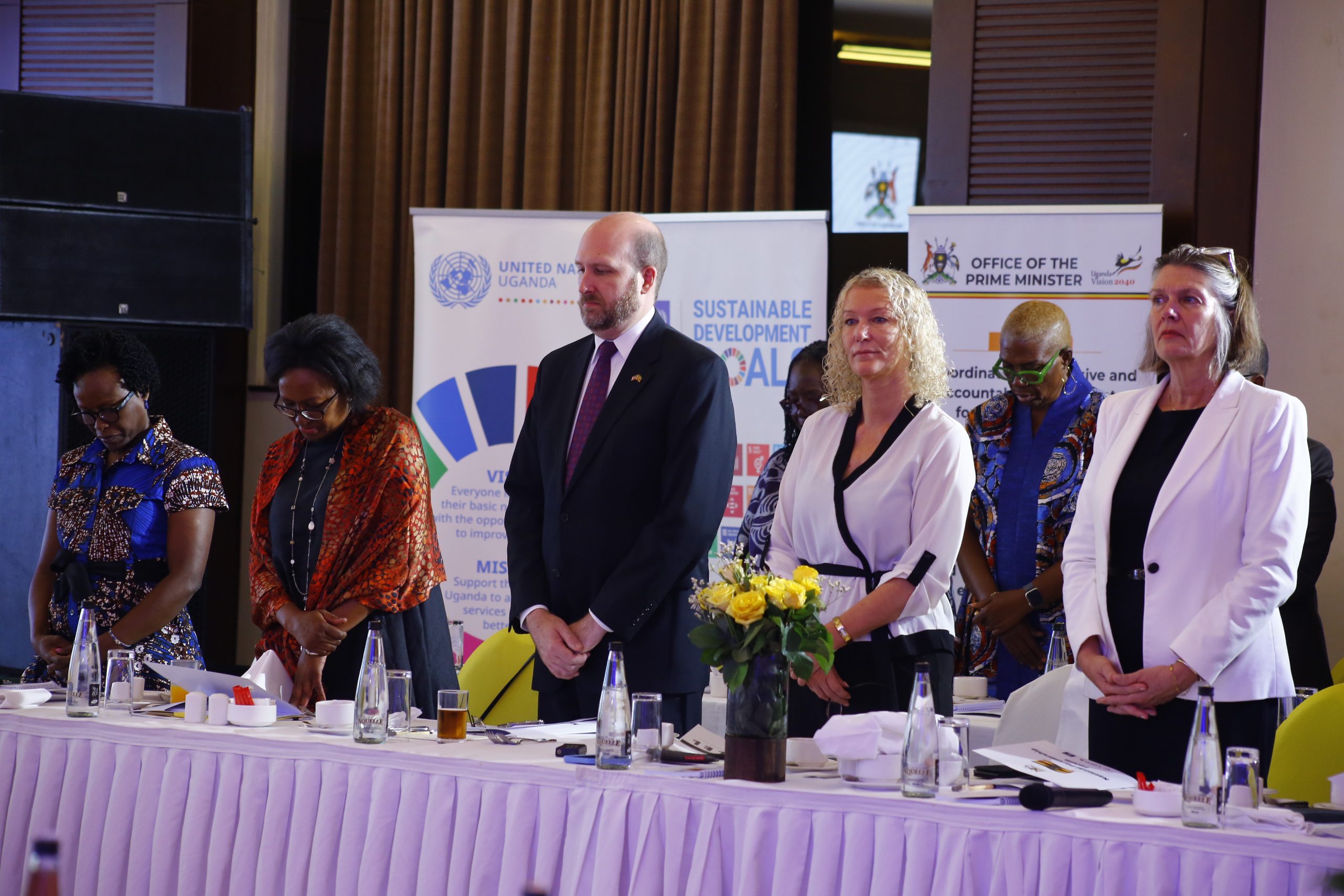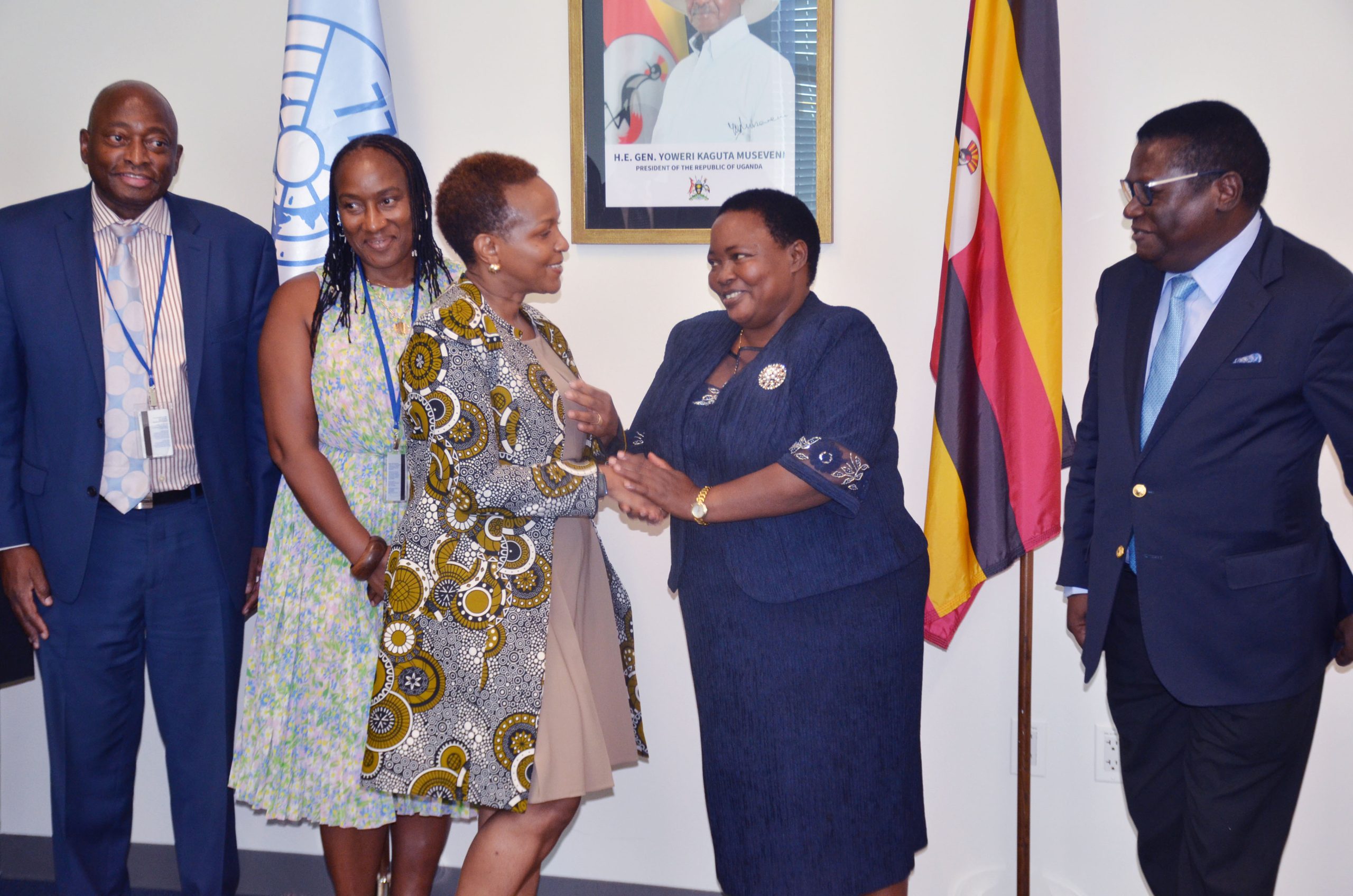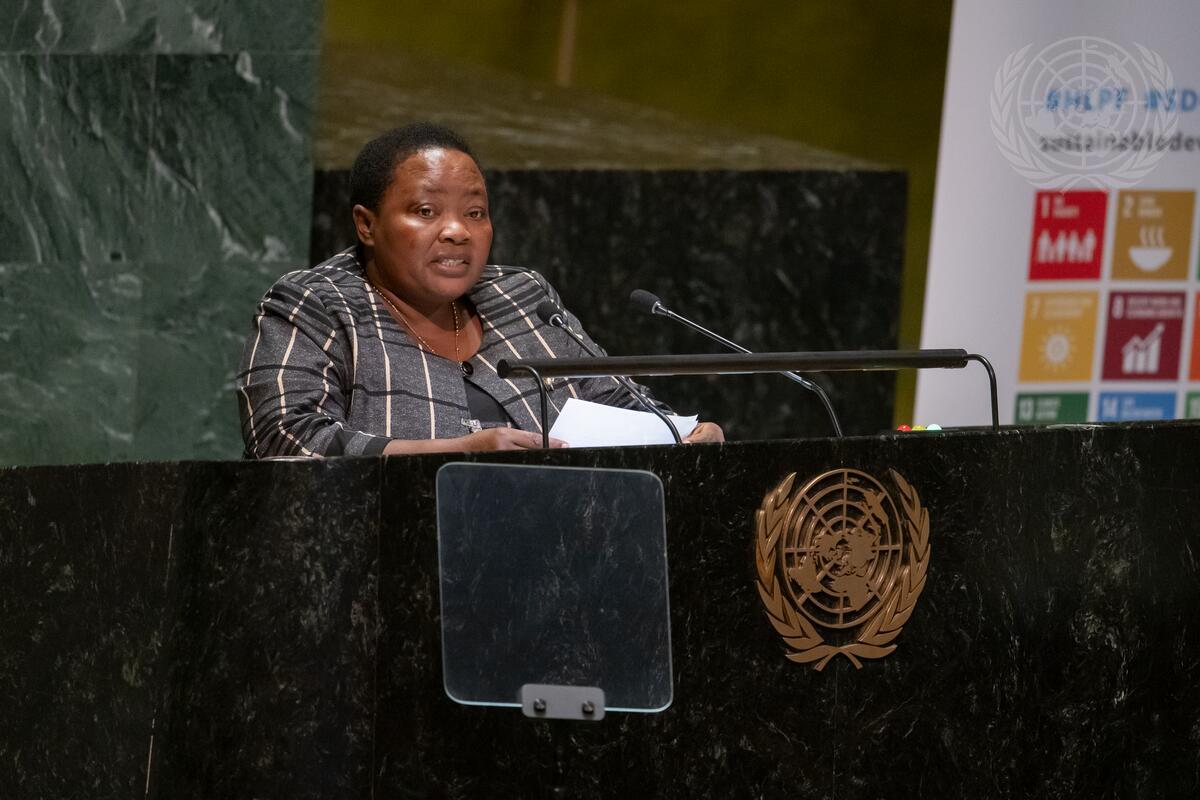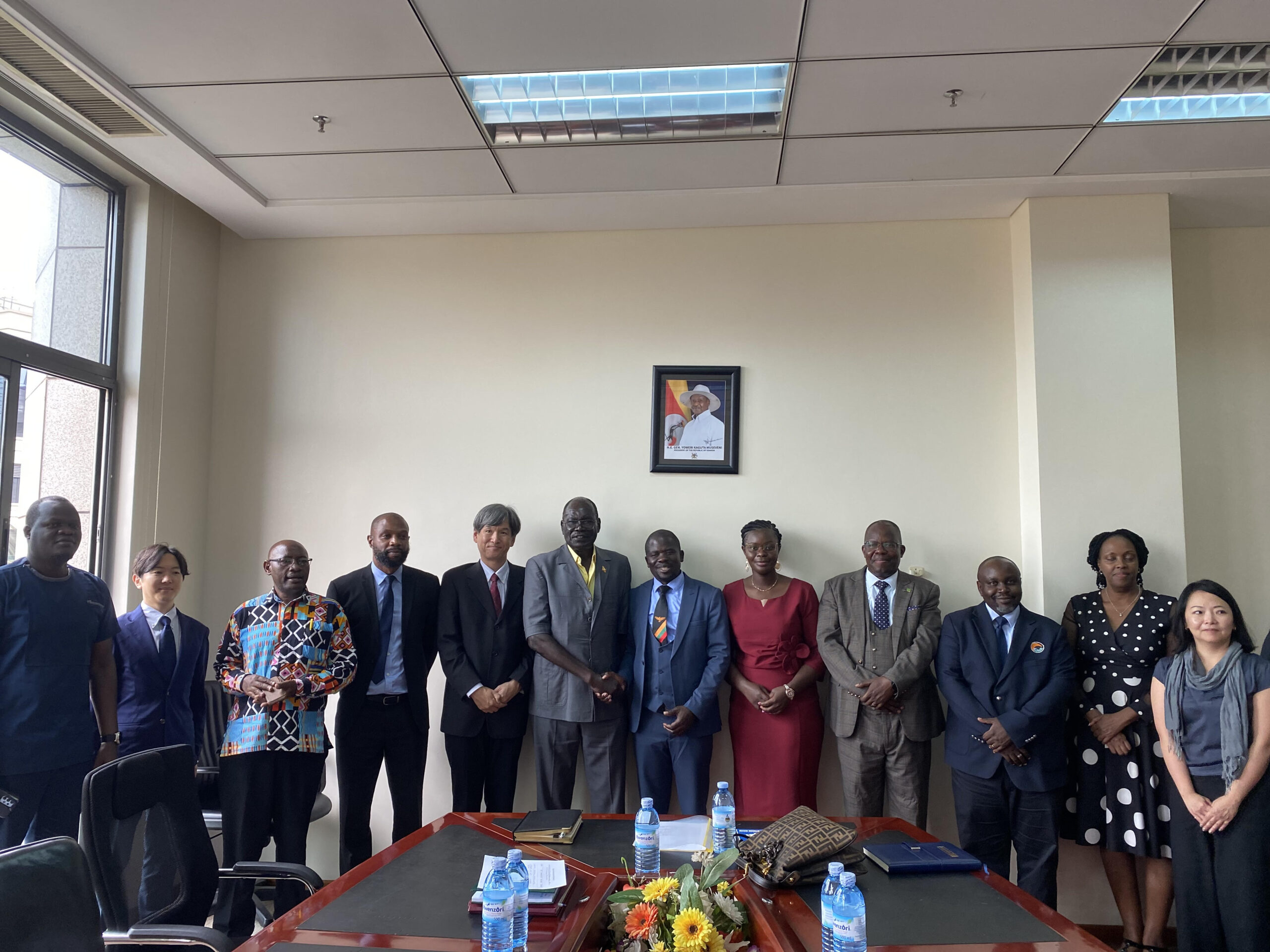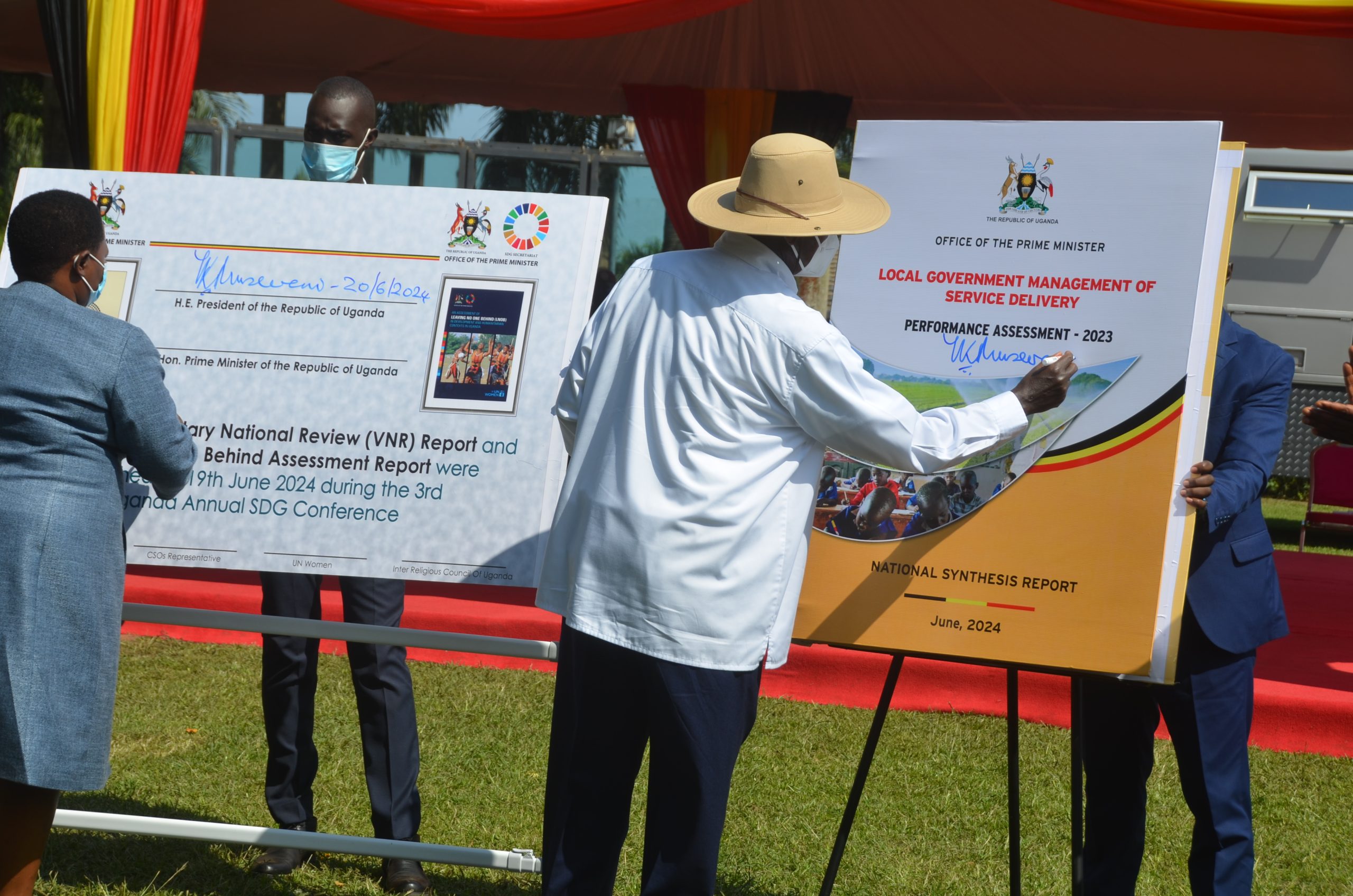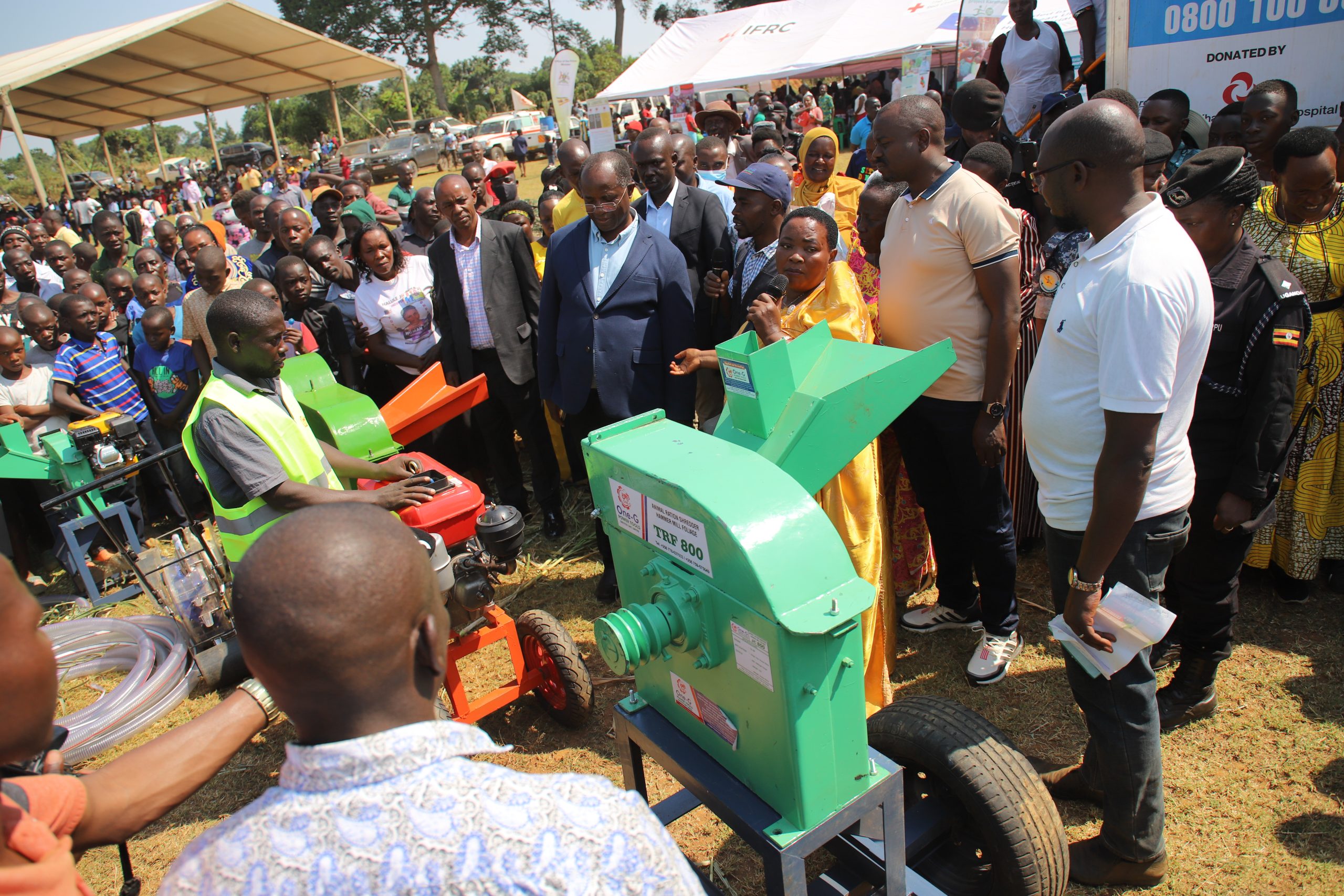By: Ismael Kasooha
KAMPALA
The Government has met with Development Partners under the National Partnership Forum (NPF) which is coordinated by the Office of the Prime Minister.
The NPF, which is guided by the Uganda Partnership Policy, is a platform through which the Government engages with Development Partners.
This platform is, among others, designed to facilitate coordination between the Government and its partners to increase the effectiveness of development assistance.
It is also aimed at promoting transparency and accountability between the Government and partners in the management of development cooperation.
Collaboration
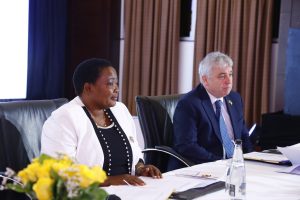
The Prime Minister Robinah Nabbanja and the Irish Ambassador to Uganda Kevin Colgan chairing the National Partnership Forum at Serena Hotel Kampala
Prime Minister, Robinah Nabbanja, who chaired the NPF meeting at Kampala Serena Hotel on Thursday (15 November 2013) noted that this forum strengthens the Government’s and Develop Partners’ commitment to fostering collaboration, dialogue, and cooperation.
She added that regular and constructive dialogue between the Government and Development Partners aligns with the ideals outlined in Uganda’s national development agenda.
“Partnerships are instrumental in harmonising priorities, mobilising resources, tackling challenges, and propelling economic growth and development,” Nabbanja said.
Mutual accountability
The partnership between the Government and Development Partners is guided by four principles – focusing on results, inclusiveness, transparency, and mutual accountability.
“These are the foundation of our actions – recognising that development cannot be achieved in isolation,” Nabbanja said.
She told the Development Partners, who included ambassadors, the UN Resident Coordinator in Uganda, Susan Namondo, and Heads of UN agencies, among others, that Uganda had set priorities to put the country on a sustainable development path with a focus on increasing household income.
These priorities, the Prime Minister said, included macro-economic stability, agro-industrialisation, infrastructure development, human capital development, tourism development and oil and gas development.
Others are service sector development, digitisation, mineral-based industrialisation, and building a knowledge-based economy.
Parish Development Model
Nabbanja said Uganda is also implementing other programmes like the Parish Development Model and Emyooga, among others, to facilitate inclusive development.
She asked the Development Partners to focus their (development) assistance on these priorities.
“Going forward there will be continued engagements and structured dialogues on a range of issues,” Nabbanja said. “We thank you, our development partners for the continued support and partnership,”
The NPF is comprised of the NPF-Political, which is chaired by the Prime Minister, the NPF-Technical, directed by the head of public service and the NPF-Task Force, managed by the permanent secretary at the Office of the Prime Minister.
The NPF-Technical and NPF-Task Force generate the business and agenda for the NPF-Political.
Commitment
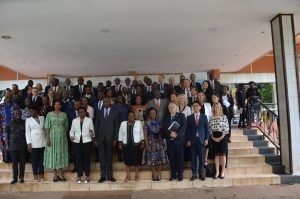
Government of Uganda officials and Development partners pose for a group photo after the Forum at Serena Hotel in Kampala
In the outcome document, which was presented by the Minister of ICT and National Guidance, Dr Chris Byaromunsi, the Government and Development Partners agreed to engage with each other regularly to promote sustainable development.
They also agreed to develop a joint accountability framework that is instrumental in ensuring mutual accountability.
“We acknowledge the significance of Official Development Assistance (ODA) to Uganda,” the statement reads in part. “However, we stressed the need to explore opportunities to strengthen our economy and establish a sound revenue base to sustain our nation’s development goals,”
Kevin Colgan, the chairperson of the Local Development Partners’ Group, who is also the Irish Ambassador to Uganda, welcomed the Government priorities.
He said that the Development Partners will continue to support Uganda’s development agenda. Namondo said Uganda and the Development Partners stand to benefit a lot from collaboration. Ends
